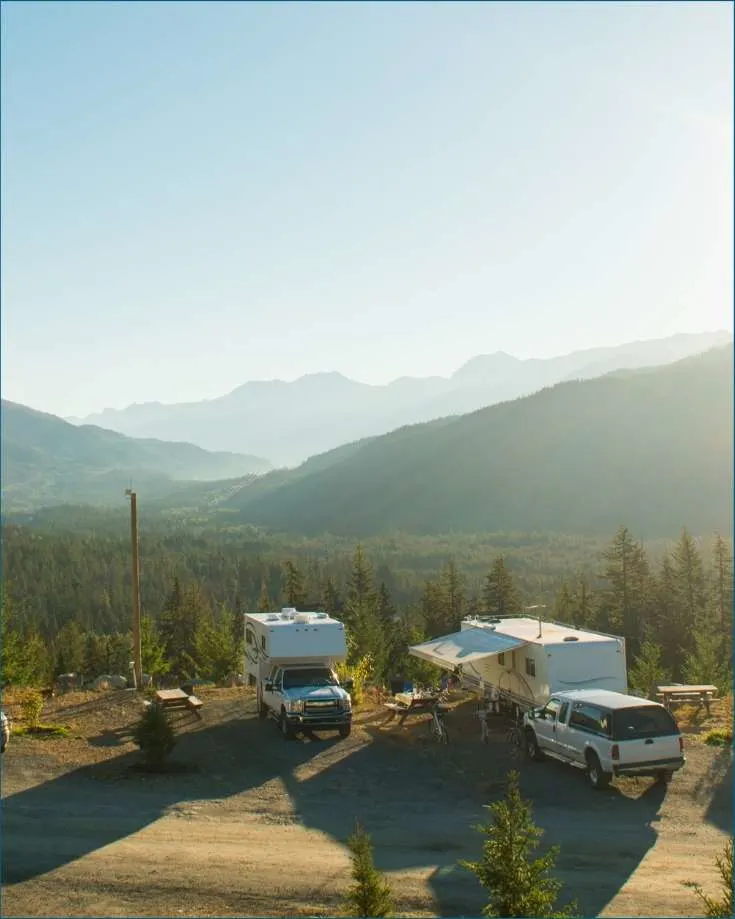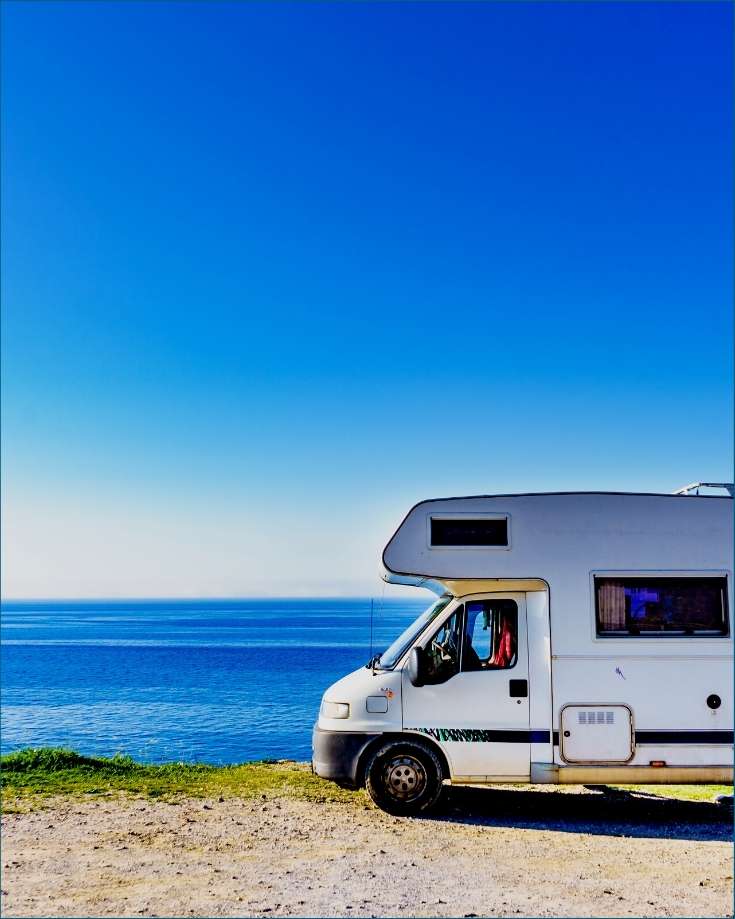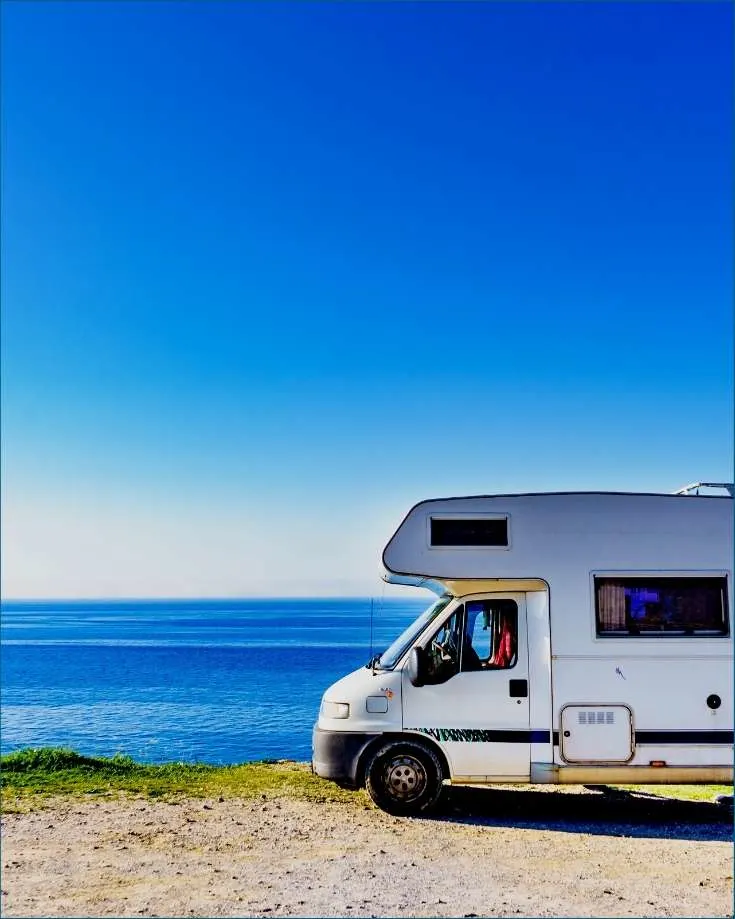Pros and cons of RV living
RV living has become increasingly popular in recent years, offering individuals and families the opportunity to travel and live a more flexible lifestyle. However, like any lifestyle choice, there are pros and cons to consider. In this article, we will explore the advantages and disadvantages of RV living.
Definition and Benefits of RV Living
RV living refers to the practice of living full-time or part-time in a recreational vehicle, commonly known as an RV or motorhome. Here are some of the benefits associated with this lifestyle:
- Freedom and Flexibility: One of the biggest advantages of RV living is the freedom and flexibility it offers. You have the ability to travel wherever you want, whenever you want, without being tied down to a specific location. This lifestyle allows you to explore new places, experience different cultures, and create unforgettable memories.
- Cost Savings: RV living can be a more affordable alternative to traditional housing. With no mortgage or rent payments, lower utility bills, and fewer expenses associated with maintaining a larger home, you can save a significant amount of money. Additionally, you have the option to choose affordable campsites or boondocking (free camping) locations to further reduce costs.
- Simplicity: Living in an RV forces you to downsize and live with less. This can be liberating for those seeking a simpler and more minimalist lifestyle. You’ll learn to prioritize experiences over material possessions and appreciate the freedom that comes with owning less stuff.
- Connection with Nature: RV living allows you to immerse yourself in nature on a daily basis. You can wake up to breathtaking views, go hiking or fishing in nearby national parks, and enjoy outdoor activities whenever you please.
- Tight-Knit Community: The RV community is known for its strong sense of camaraderie and support. You’ll have the opportunity to meet fellow RVers at campsites, share stories, and build lasting friendships. This sense of community can be especially valuable for those who are traveling solo or looking to connect with like-minded individuals.
While RV living offers numerous benefits, it’s important to consider the potential drawbacks as well. In the next section, we will explore some of the cons of this lifestyle.

Pros of RV Living
1. Flexibility and Mobility
Living in an RV gives you the freedom to travel and explore new places whenever you want. You can change your scenery as often as you like, without the need for hotel reservations or worrying about finding accommodation. Whether it’s a weekend getaway or a long-term adventure, RV living allows you to have the flexibility to go wherever your heart desires.
2. Cost-effectiveness
RV living can be a cost-effective way of living compared to traditional housing. With no mortgage or rent payments, lower utility bills, and the ability to cook your own meals, you can save a significant amount of money. Additionally, you have the option to choose affordable campgrounds or boondocking (free camping) spots, reducing your accommodation expenses even further.
3. Closer to Nature and Outdoor Activities
Living in an RV allows you to immerse yourself in nature and enjoy outdoor activities more frequently. You can wake up to breathtaking views, hike in national parks, swim in lakes, and relax by the beach – all from the comfort of your RV doorstep. Being closer to nature offers a sense of tranquility and rejuvenation that can enhance your overall well-being.
4. Minimalistic Lifestyle
RV living encourages a minimalistic lifestyle as you have limited space available. This means you have to prioritize what is essential and let go of unnecessary belongings. Embracing minimalism can lead to less clutter, reduced stress, and a focus on experiences rather than material possessions.
5. Community and Networking Opportunities
Living in an RV opens up opportunities for building connections with fellow RVers and forming a vibrant community on the road. Campgrounds often host social events, potlucks, and gatherings where you can meet like-minded individuals and share experiences. The RV community is known for its helpfulness and camaraderie, providing a supportive network wherever you go.
While RV living offers numerous advantages, it’s important to consider the potential cons as well. These may include limited space, maintenance and repair costs, the need for proper planning and organization, and potential challenges with internet connectivity and access to amenities.
Overall, RV living can be an exciting and fulfilling lifestyle choice for those seeking adventure, freedom, and a closer connection to nature. It’s essential to weigh the pros and cons to determine if it aligns with your personal preferences and goals.

Cons of RV Living
Living in an RV can be an exciting and adventurous lifestyle, but it also comes with its fair share of challenges. Here are some cons to consider before embarking on the RV living journey.
1. Limited Space and Storage
One of the most significant drawbacks of RV living is the limited space and storage available. RVs are compact, and this means you have to downsize your possessions significantly. Finding creative ways to maximize storage space and staying organized can be a constant challenge.
2. Maintenance and Repairs
Owning an RV requires regular maintenance and repairs. From engine issues to plumbing problems, there’s always something that needs fixing. Finding reliable mechanics or having the skills to handle repairs yourself is essential. Plus, the cost of maintenance and repairs can add up over time.
3. Dependence on Campground Facilities
When living in an RV, you are dependent on campground facilities for basic amenities like water, electricity, and sewage disposal. While many campgrounds offer these services, there may be times when you have limited access or encounter facilities that are not up to your standards.
4. Social and Family Challenges
RV living can present social and family challenges. Being constantly on the move means you may have limited opportunities to build long-lasting relationships or participate in community activities. Additionally, if you have children or pets, their education and socialization may be impacted by the transient nature of RV living.
5. Weather and Climate Constraints
Living in an RV means being exposed to the elements more than in a traditional home. Extreme weather conditions like storms, high winds, and extreme temperatures can make RV living uncomfortable or even unsafe. It’s important to plan your travels carefully to avoid adverse weather conditions.
While RV living offers freedom and flexibility, it’s crucial to consider these cons before making the leap. By being aware of the challenges and planning accordingly, you can make the most of your RV lifestyle and enjoy the many benefits it brings.

Practical Tips for Successful RV Living
4. Essential RV Tools and Equipment
When it comes to living in an RV, having the right tools and equipment can make all the difference. Here are some essential items that every RV owner should have on hand:
- Tire Pressure Gauge: Keeping your tires properly inflated is crucial for safe and efficient travel. A tire pressure gauge will help you monitor and maintain the correct tire pressure.
- Leveling Blocks: RVs need to be level to prevent appliances from malfunctioning and to ensure a good night’s sleep. Leveling blocks can be used to raise or lower specific areas of your RV to achieve a level surface.
- Sewer Hose: Dealing with wastewater is an inevitable part of RV living. A durable sewer hose is essential for properly disposing of gray and black water.
- Water Pressure Regulator: Campground water sources can have high water pressure, which can damage your RV’s plumbing system. A water pressure regulator will help protect your pipes by reducing the water pressure to a safe level.
- RV Surge Protector: Electrical surges can damage your RV’s electrical system and appliances. An RV surge protector will safeguard your electronics by monitoring the power source and automatically shutting off if there is an electrical surge or other issues.
- Tool Kit: Having a basic tool kit with essential tools such as screwdrivers, pliers, wrenches, and a multi-tool can come in handy for minor repairs or adjustments.
- Campsite Essentials: Don’t forget to bring items like camping chairs, outdoor rugs, a portable grill, and other camping essentials to enhance your outdoor living experience.
By having these essential tools and equipment, you’ll be better prepared for any situation that may arise while living in your RV. Remember to regularly inspect and maintain your RV and its components to ensure a safe and enjoyable journey.
Conclusion
Living in an RV can offer freedom, flexibility, and the opportunity to explore new places. However, it’s important to be aware of the pros and cons of RV living before embarking on this lifestyle. By considering factors such as cost, maintenance, and space limitations, you can make an informed decision about whether RV living is right for you. With proper planning, preparation, and the right mindset, RV living can be a rewarding and fulfilling experience.

Health and Sanitation in RV Living
RV living offers a unique and adventurous lifestyle, but it also comes with its own set of pros and cons. One important aspect to consider is health and sanitation. Let’s explore the pros and cons of this aspect in RV living.
1. Water and Waste Management
Pros: RVs are equipped with water tanks and waste management systems, allowing you to have access to clean water and proper waste disposal. You have control over the quality of water you use for drinking, cooking, and showering. This can be especially beneficial if you have specific health concerns or preferences.
Cons: However, managing water and waste can be challenging in an RV. Water tanks need to be refilled regularly, and waste tanks need to be emptied at designated dump stations. This requires planning and finding appropriate facilities while on the road. Improper handling of waste can lead to unpleasant odors and potential health risks.
2. Maintaining a Healthy Lifestyle
Pros: RV living allows you to have control over your meals and lifestyle choices. You can cook your own healthy meals using fresh ingredients, which can be cost-effective compared to eating out constantly. Additionally, being on the move provides opportunities for outdoor activities like hiking, biking, and exploring nature, promoting an active lifestyle.
Cons: On the flip side, limited space in an RV may pose challenges when it comes to storing fresh produce or exercise equipment. Access to gyms or fitness centers may also be limited while traveling. It requires discipline and creativity to maintain a healthy lifestyle within the constraints of RV living.
In conclusion, health and sanitation in RV living have both pros and cons. It offers the freedom to control your water quality and waste management but requires careful planning and maintenance. Similarly, it allows for healthy meal choices and outdoor activities, but limited space and resources can pose challenges. Ultimately, it’s important to prioritize your health and adapt to the unique circumstances of RV living.

Emotional and Social Impact of RV Living
RV living offers a unique lifestyle that allows individuals to travel and explore while enjoying the comforts of home on wheels. However, like any other lifestyle choice, it comes with its own set of pros and cons. Let’s take a closer look at the emotional and social impact of RV living.
1. Building Relationships on the Road
One of the biggest advantages of RV living is the opportunity to meet new people and build relationships on the road. RV parks and campgrounds are often filled with like-minded individuals who share a love for adventure and exploration. This creates a sense of community where friendships can flourish. From impromptu gatherings around the campfire to organized social events, RV living offers ample opportunities to connect with others.
2. Coping with Loneliness and Isolation
On the flip side, RV living can also lead to feelings of loneliness and isolation, especially for those who prefer a more settled lifestyle. Constantly being on the move may limit the ability to form deep connections or maintain long-term friendships. Additionally, spending extended periods in remote locations with limited social interaction can be challenging for some individuals. It’s important to be aware of these potential downsides and find ways to stay connected with loved ones or seek out social activities when needed.
3. Balancing Freedom and Routine
RV living offers unparalleled freedom and flexibility to explore new places whenever you desire. However, this freedom can also come at the cost of routine and stability. Living in a small space requires careful planning and organization, which can be overwhelming for some individuals. Establishing a balance between adventure and routine is crucial for maintaining emotional well-being while on the road.
In conclusion, RV living can be an incredibly rewarding experience that allows individuals to embrace a nomadic lifestyle while enjoying the comforts of home. However, it’s important to consider the emotional and social impact it may have. Building relationships on the road, coping with loneliness and isolation, and finding a balance between freedom and routine are key factors to consider when embarking on this lifestyle.

Environmental Impact and Sustainability
RV living offers both pros and cons when it comes to the environment and sustainability. Here are some key points to consider:
1. Reduced Carbon Footprint:
Living in an RV can significantly reduce your carbon footprint compared to living in a traditional home. RVs are generally smaller and require less energy for heating, cooling, and lighting. Additionally, many RV owners are embracing renewable energy sources like solar panels, further reducing their environmental impact.
2. Boondocking and Dispersed Camping:
One of the advantages of RV living is the ability to boondock or camp in dispersed areas away from traditional campgrounds. This allows you to enjoy nature while minimizing your impact on established ecosystems. However, it’s important to be mindful of Leave No Trace principles and follow local regulations to ensure you’re not causing harm to the environment.
3. Water Conservation:
RVs typically have limited water storage capacities, which encourages occupants to be mindful of their water usage. This can lead to more conscious water conservation practices such as shorter showers and efficient dishwashing techniques. Additionally, some RVers utilize greywater systems to recycle and reuse water, further reducing their water consumption.
4. Waste Management:
Proper waste management is crucial in RV living. Many RVs are equipped with holding tanks for both fresh water and wastewater. Responsible RVers ensure that they dispose of their waste properly at designated dump stations or campgrounds with appropriate facilities. Some RVers even embrace composting toilets to minimize their impact on sewage systems.
While there are environmental benefits to RV living, it’s important to acknowledge the potential challenges:
1. Fuel Consumption:
RVs typically have lower fuel efficiency compared to smaller vehicles or public transportation. This means that long-distance travel can contribute to higher carbon emissions. It’s important for RVers to consider their travel patterns and find ways to minimize fuel consumption, such as planning efficient routes or utilizing alternative transportation methods when possible.
2. Limited Access to Sustainable Amenities:
RV parks and campgrounds may not always provide sustainable amenities like recycling facilities or renewable energy options. RVers may need to be proactive in finding eco-friendly solutions, such as seeking out campgrounds that prioritize sustainability or utilizing portable solar panels and composting systems.
In conclusion, RV living can offer environmental benefits through reduced carbon footprints, boondocking opportunities, water conservation, and responsible waste management. However, it’s essential for RVers to be mindful of fuel consumption and seek out sustainable amenities when available. By making conscious choices, RV living can be a sustainable and eco-friendly lifestyle option.

Conclusion
RV living offers a unique lifestyle that comes with its own set of pros and cons. It provides freedom, flexibility, and the opportunity to explore new places, but it also has its challenges. It’s important to carefully consider these factors before deciding if RV living is right for you.
Summary of Pros and Cons of RV Living
Pros:
- Freedom and Flexibility: RV living allows you to travel and live wherever you want, giving you the freedom to explore new places and change your scenery whenever you desire.
- Closer to Nature: Living in an RV allows you to be closer to nature, with the ability to camp in beautiful locations and enjoy outdoor activities.
- Cost Savings: RV living can be more affordable than traditional housing, as it eliminates mortgage or rent payments and reduces utility bills.
- Simplicity: Living in a smaller space encourages a simpler lifestyle with less clutter and fewer possessions.
- Community: RV parks and campgrounds provide opportunities to meet like-minded individuals and build a sense of community.
Cons:
- Limited Space: Living in an RV means living in a smaller space, which can be challenging for some individuals or families.
- Maintenance and Repairs: RVs require regular maintenance and repairs, which can be time-consuming and costly.
- Lack of Amenities: RV living may mean sacrificing certain amenities found in traditional homes, such as ample storage space or a large kitchen.
- Travel Expenses: While RV living can be cost-effective, travel expenses such as fuel, campground fees, and maintenance costs should be considered.
- Weather Constraints: Extreme weather conditions can impact the comfort and safety of RV living, requiring additional preparation and planning.
In conclusion, RV living offers a unique lifestyle that can be rewarding for those seeking freedom, adventure, and a simpler way of life. However, it’s important to weigh the pros and cons to determine if it aligns with your personal preferences and circumstances.











